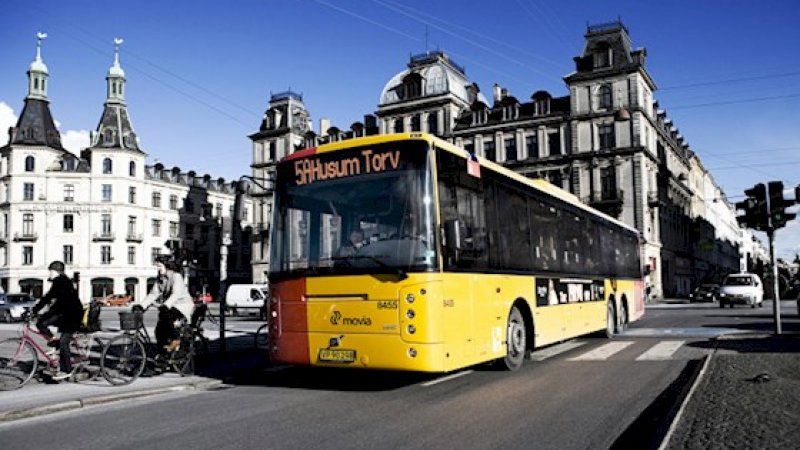The pollution rate of public buses in Copenhagen has decreased since 300 of them were fitted with new filters that eliminate 95 percent of particulate matters and nitrogen dioxide. But there is still a long way to go.
Close to 1,000 of the buses run by the bus operator Movia still emit far higher NOx and particle emissions than current EU standards allow. And that doesn’t look to be changing any time in the near future.
“Thanks to funds from the municipalities of Copenhagen and Frederiksberg, we managed to mount cleaning filters on 299 buses,” Karen Nielsen, a Movia spokesperson, told Ingeniøren newspaper.
“In regards to the remaining 984 buses, the involved municipalities and regions currently don’t have the funds to upgrade them – aside from the upgrades that take place via regular tenders.”
READ MORE: Air in Denmark’s capital getting cleaner
No funds left
The latest EU emission standard is the Euro 6 standard, which allows for a limit of 0.4 grams per NOx/kWh. Meanwhile, buses under the Euro 5 limit can emit five times as much NOx/kWh while buses under the Euro 4 limit can emit over eight times as much. The trend is similar in terms of particle emission.
Movia wrote that it has 146 real Euro 6 buses and 299 buses that have been upgraded to Euro 6 via filters. But 948 of its buses are still of a lower standard and the company has no current plans to upgrade them to Euro 6 standards.
The funds used to upgrade the 299 Movia buses came from 84 million kroner set aside by the former government’s ‘Clean Air for Danes’ package.















